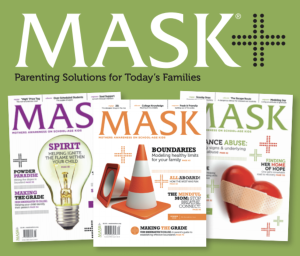
Designing the perfect room for a Child on the Autism Spectrum
April 27, 2020
Five Ways to Get Something Positive Out of Dealing with Your Emotions
April 27, 2020THE TRUTH ABOUT ABUSIVE RELATIONSHIPS AND HOW YOU CAN GET THE LOVE YOU DESERVE
It’s inevitable: we are going to date, form new relationships and develop romantic feelings for other people. It’s human nature to want to love and receive love back. As we grow up, we try new things, put on different “hats” to discover who we are as a person, and connect with people who we relate to and who make us feel good.
In a perfect world, we’d never argue with our significant other or disagree with them. However, it’s normal to have conflict in our relationships — there’s no way to stop this. In fact, it is healthy to learn how to work through conflict and understand a different perspective. But there is a difference between normal relationship conflict and relational abuse. It’s also important to know that not only adults find themselves in abusive relationships, but teens do, too.
So how can we identify unhealthy relationships before we find ourselves involved in one? More importantly, how can we cultivate healthy relationships that bring us joy and security? If you or someone you know finds themself in a negative relationship, it’s important to know what support is available.
Some behaviors of teens who may be in an unhealthy relationship include:
- Isolation from friends or family
- Spending time with their partner all the time
- Engaging in unsafe, unprotected, or non-consensual sex
- Engaging in dangerous or illegal behaviors with their partner
- Substance abuse
- Abusive behavior such as yelling, name calling, emotional and physical abuse
- Losing sense of self
- Change in grades or school performance
Abuse comes in many different forms. Abuse can be physical, sexual, psychological or emotional. It can often be hard to identify abuse in a relationship, especially when there are strong feelings of love involved. There are some key things to highlight when it comes to romantic relationships.
I don’t think we talk about safe sex and abstinence enough. Teens need to know that they don’t have to have sex just because “everyone else is doing it” or because they feel pressured by their partner. This can be controlling and abusive. Sex does not equal love. Loving someone for who they are on the inside and for how they treat others is much more important.
Maintaining boundaries and creating balance in our relationships isn’t always easy, but it’s necessary in order to protect your well-being. We don’t need to spend every minute of every day with our partner, but this can be hard to understand when we really like someone. Think of it this way: time away from your partner keeps you sane and independent. It keeps you from depending on that person for your happiness. It also gives you time to miss them.
Communication is key, and trust me, none of us are experts at communication. But what is a relationship without communication? You should be able to trust your partner whole-heartedly. Your partner should never judge you, even if they don’t agree with you. So talk about your feelings and own them. It may be hard to find the courage to express your feelings honestly, but it feels so much better once you do. You’ll find that honest, open communication makes a world of difference.
Finally, yes, a relationship can be rewarding and life-changing and anyone can find the one. It’s all about equality. Do nice things that you know makes your partner smile. Support them in their time of need. Give them space when they need it and be there waiting to hug them when they’re ready to come back. Be patient and understanding. And love them for their strengths and their flaws.
If I could say just one thing to someone who is being hurt in a relationship, it would be to remember that abuse is NEVER your fault. You deserve to be taken care of and supported. You have the power to change and put yourself first. You are special and you are worthy of love.
By Paige Vannarath
MASK the Parenting Magazine a quarterly publication providing solutions for Today’s Families.
The parenting manual offering solutions to the modern-day challenges families face. From Pre-K
through College stay up to date on the modern day issues families face.
Are you up to date on the issues your child is facing?
MASK Mothers Awareness on School-age Kids offers parenting solutions for today’s families. MASK tackles important topics – from drugs and alcohol to bullying and Internet safety -and gives students, parents and the community the knowledge and tools to manage these potential challenges.
Subscribe today! https://www.tools4teaching.com/product/mask-the-magazine/
Download and share the MASKmatters app now! Made for children, parents, teachers and in Spanish.
Have solutions at your fingertips
Available free on apple and google play links below
Apple https://apps.apple.com/us/app/maskmatters/id1482305692
Google Play
https://play.google.com/store/apps/details?id=com.maskmatters.maskmattersapp&hl=en_US&gl=US




